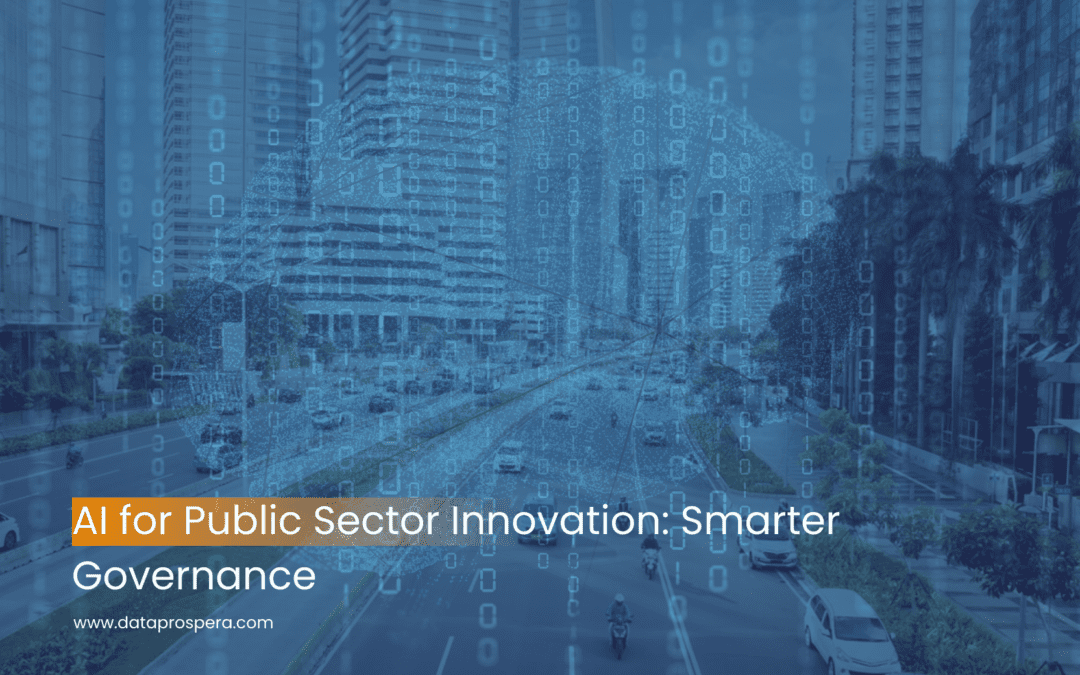Artificial Intelligence (AI) is no longer just a tool for private enterprises—governments worldwide are rapidly adopting AI to modernize operations, enhance citizen services, and implement smarter governance strategies. In an era where public expectations are high and resources are limited, AI offers the public sector a powerful way to innovate, operate efficiently, and respond proactively to citizens’ needs.
Why AI Matters for Public Governance
Governments manage vast datasets across sectors like healthcare, transportation, public safety, and education. AI allows these data streams to be transformed into actionable insights that improve policymaking and service delivery. From predictive analytics to real-time public engagement, AI introduces speed, accuracy, and transparency to public sector operations.
According to the World Bank, AI can help governments achieve sustainable development goals by optimizing resource allocation and improving the effectiveness of public programs.
Key Applications of AI in the Public Sector
1. Smart Policy Design and Decision-Making
Machine learning models can analyze social, economic, and environmental data to inform policies. For instance, predictive analytics can forecast disease outbreaks, traffic congestion, or economic downturns, helping authorities take preventive action.
2. Citizen-Centric Services
AI-driven chatbots and virtual assistants improve access to public services by offering 24/7 support, reducing wait times, and simplifying bureaucratic processes. Natural language processing (NLP) also enables better interpretation of public feedback across social and digital platforms.
3. Fraud Detection and Risk Management
AI enhances government transparency by flagging irregularities in public spending, tax filings, or procurement processes. Algorithms can identify fraud patterns, prioritize high-risk cases, and support audit functions.
4. Smart Infrastructure and Urban Planning
AI supports real-time traffic management, energy optimization, and infrastructure maintenance in smart cities. By integrating AI with IoT, governments can build responsive and sustainable urban environments.
5. Crisis Response and Disaster Management
AI helps in real-time monitoring and forecasting of natural disasters, pandemics, or cyber threats. It supports rapid decision-making, resource deployment, and coordination across agencies.
Explore how AI supports critical sectors in our blog: How Big Data & AI Ensure Compliance with Local Regulations
Challenges and Ethical Considerations
Despite its promise, AI adoption in the public sector must navigate challenges such as:
- Data Privacy and Security: Ensuring responsible use of citizen data
- Algorithmic Bias: Guaranteeing fairness and avoiding discrimination
- Transparency and Accountability: Making AI decisions explainable to the public
Governments must develop ethical frameworks and regulatory guidelines to ensure trust and accountability in AI systems.
Indonesia’s Path Toward Smarter Governance
In Indonesia, the national digital transformation strategy encourages AI adoption across ministries and local governments. Initiatives in smart city development, digital ID systems, and e-governance platforms are driving a new era of tech-enabled public service.
Discover more local insights in our blog: Data Governance in the AI Era
Conclusion
AI is reshaping the future of governance by making it more intelligent, inclusive, and efficient. When responsibly implemented, AI empowers the public sector to deliver better services, make informed decisions, and engage citizens more effectively.
As innovation accelerates, now is the time for governments to invest in AI capabilities and cultivate the ecosystem for smarter governance.
Outbound Links:
Internal Links:
- How Big Data & AI Ensure Compliance with Local Regulations
- Data Governance in the AI Era


Recent Comments